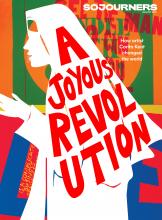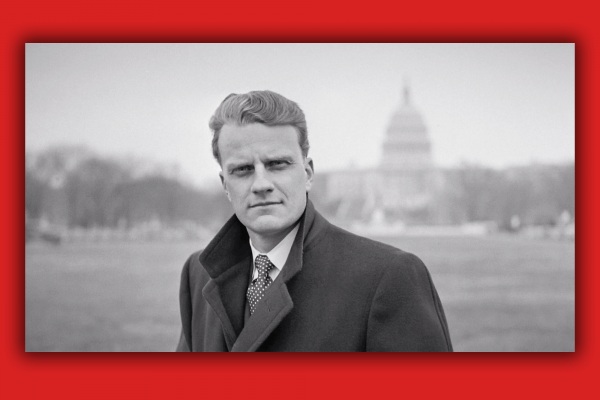THE TWO-HOUR PBS documentary Billy Graham ran as part of the “American Experience” series, but it could have been subtitled “An American Tragedy.”
The story Billy Graham tells is mostly one of triumph. A boy grows up on a North Carolina dairy farm, becomes the top Fuller Brush salesman in a two-state territory, then answers a call to preach. His crusades attract more than 200 million people and change hundreds of thousands of lives. However, like all the tragic heroes before him, Billy Graham had a flaw. It was neither lust nor greed, the nemeses of so many evangelists. Instead, as one of the commentators in the documentary tells us, Graham was drawn to power “like a moth to a flame.”
In the 1940s Graham led a movement that dragged evangelical Christianity out of the cultural backwoods and into the mainstream of postwar American life. Graham’s early years provide a road map of that movement as he went from ultra-sectarian Bob Jones University to Florida Bible Institute to Wheaton College. He worked as a staff preacher with Youth for Christ, then began a series of independent evangelistic crusades that started in a tent off Hollywood Boulevard in 1949 and culminated, in 1957, with a 16-week run at Madison Square Garden.
Read the Full Article

